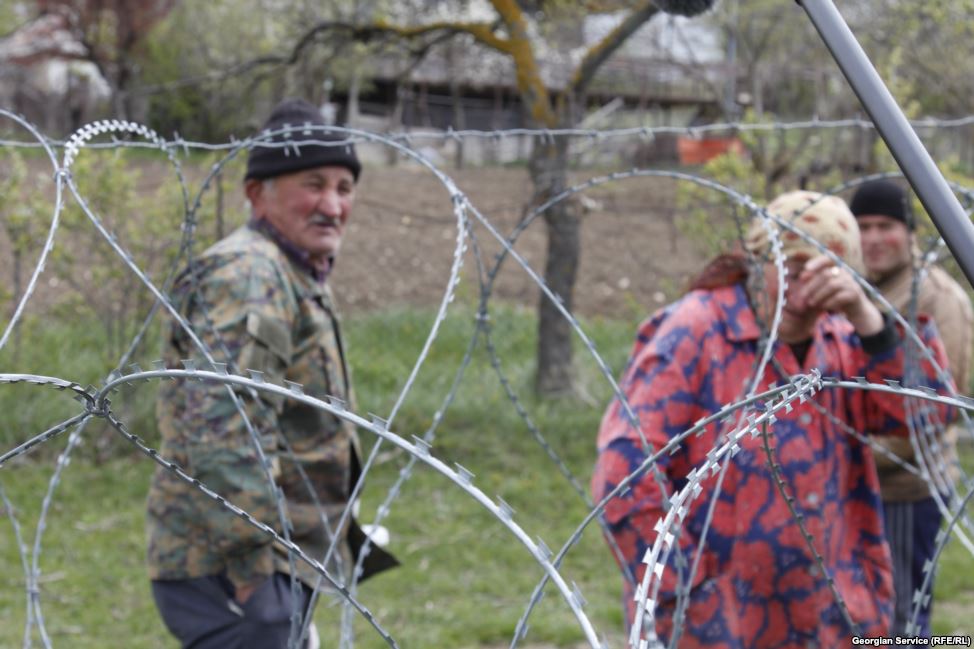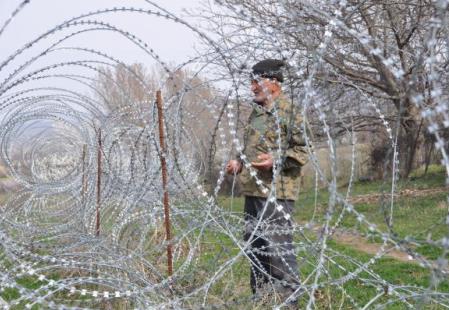- NEWS
Installation of “border" signs in Georgian villages sees important pipeline under Russian control
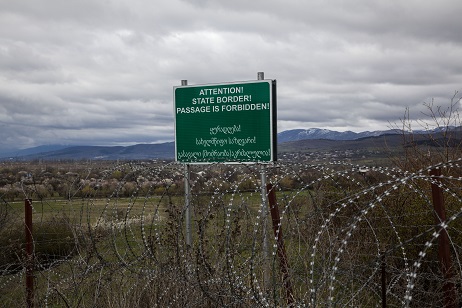
Russia has advanced its creeping occupation into Georgian territory, resulting in a portion of the BP-operated Baku–Supsa Pipeline now under Russian control in the breakaway Tskinvali region (South Ossetia).
The pipeline was on Georgian territory but now appeared to be in occupied land after Russian occupational forces installed so-called border signs in Georgian villages.
Russian guards placed the "border" signs in Tsitelubani and Orchosani villages in the Gori municipality and Akhalgori municipality respectively, in central Georgia yesterday.
Georgia’s Interior Ministry released a special statement in response to the unlawful installation of the de facto border signs and said it was "deeply concerned" by Russia's provocative actions. As a result, now a part of the important Baku–Supsa Pipeline that was laid near the villages, was now on Russian-controlled territory.
The Ministry said this was "deliberate provocation" from the Russian side that "aimed to destabilise the situation”.
The Baku–Supsa Pipeline is an 833-kilometre oil pipeline that runs from the Sangachal Terminal near Baku, Azerbaijan to the Supsa terminal in Georgia. It transports oil from the Azeri-Chirag-Guneshli field and the pipeline is operated by BP.
Meanwhile the installation of the so-called "border" signposts prevented local inhabitants of the Georgian villages from reaching their wheat fields.
Georgia: Easter behind barbed wire
Most farmers had already cultivated their lands on the rural outskirts and were now worried they would not be allowed to access their land to collect their crops.
Additionally, local residents said they were now unable to reach their pastures and would probably be forced to sell all their cattle after about 70 percent (about 10 hectares) of their fields were now under Russian and de facto South Ossetian control.
- RELATED
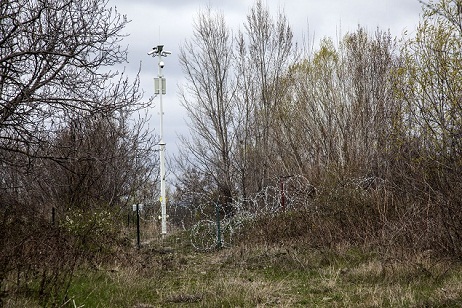
A Georgian man has been detained in occupied Tskhinvali territory while attending his mother-in-law’s funeral at the village cemetery located near the de facto occupation line.
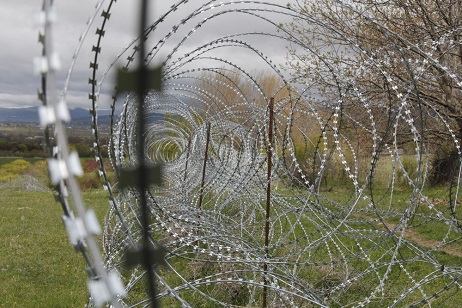
Russian Occupational forces have released a Georgian teenager, after he was taken as a hostage for allegedly crossing the so-called occupation line.
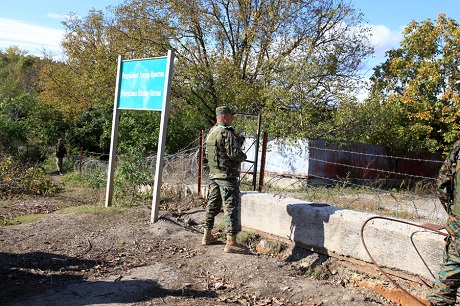
Two Georgian citizens have been taken hostage from Gori villages today- Vasil Khidasheli,19, from the village Tsitelubani and Aleksandre Shiukashvili,32, from the village Kirbali. According to the Ministry of Internal Affairs ( MIA) international organisations have already been informed regarding the facts.
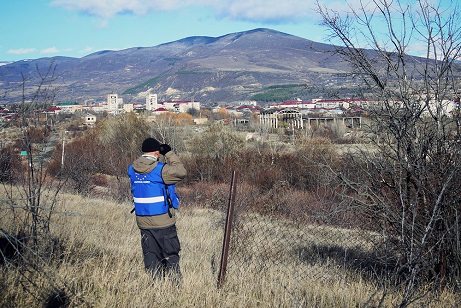
An elderly man from the Kaspi district is the latest Georgian citizen to be detained by Russian soldiers at the so-called occupation line near Georgia’s breakaway Tskhinvali (South Ossetia) region.


A middle-aged resident has been snatched by Russian guards for allegedly attempting to cross the so-called border between Georgia and breakaway Tskhinvali (South Ossetia).

Tbilisi is calling on the global community to "properly respond” to Russia’s "illegal actions” of creeping occupation at the Administrative Boundary Line (ABL) between breakaway Tskhinvali region (South Ossetia) and the rest of Georgia.
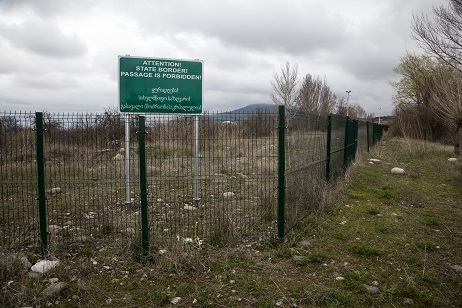
The global community is concerned by Russia’s creeping occupation into Georgian soil and is urging the giant nation to respect Georgia’s territorial integrity.

Lithuania has expressed its "grave concern” over the ongoing "borderization” process along the Administrative Boundary Line (ABL) between Georgia’s occupied region Tskhinvali (South Ossetia) and the remaining territory of Georgia.
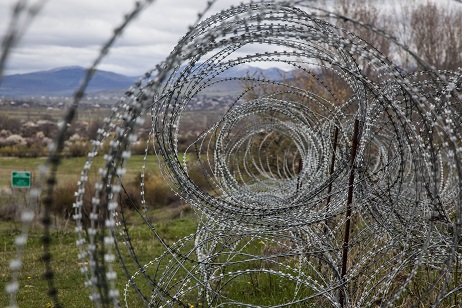
Georgia has officially sent a letter of protest to Russia denouncing Russia’s "provocative actions” and unlawful claim over Georgian territory in a move called creeping occupation.
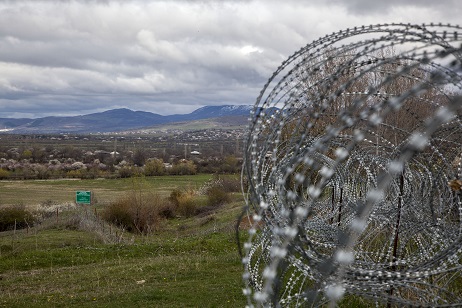
The European Union says Russia's actions at the administrative boundary line (ABL) in Georgia's breakaway Tskhinvali (South Ossetia) region are unlawful and "provocative".
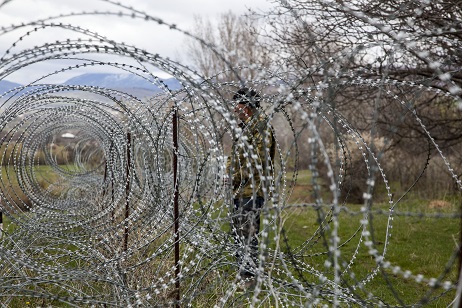
The leader of the Parliamentary Assembly of the Council of Europe (PACE) has expressed her grave concern about Russia’s recent efforts to move deeper into Georgian territory and change the Administrative Border Line (ABL) in Georgia’s breakaway Tskhinvali region,.
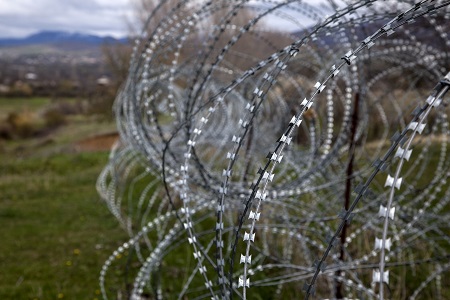
The situation along the administrative boundary line of Georgia's breakaway region of Tskhinvali (South Ossetia) today became tense after seven armed people in military uniform removed the Georgian flag away from the so-called border.

The United Nations Secretary-General is the latest international official to condemn Russia’s illegal actions at the Administrative Border Line (ABL) in Georgia’s breakaway Tskhinvali region.
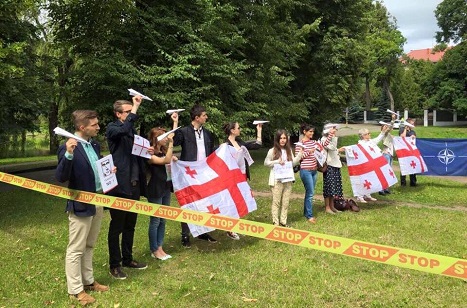
The people of Lithuania have ventured out into the capital city in a public show of support for Georgia’s territorial integrity following Russia’s creeping occupation into Georgian territory.

More members of the international community are condemning Russia’s illegal actions at the Administrative Border Line (ABL) in Georgia’s breakaway Tskhinvali region.

The European People’s Party (EPP) has "strongly condemned” Russia’s installation of new signposts that effectively redraws the Administrative Boundary Line (ABL) of breakaway Tskhinvali (South Ossetia) and extending its occupation two kilometres deeper into Georgian territory.

The tense situation along the Administrative Boundary Line (ABL) between breakaway Tskhinvali region (South Ossetia) and the rest of Georgia has intensified after a Georgian man was kidnapped by Russian servicemen from Tbilisi-controlled territory today.
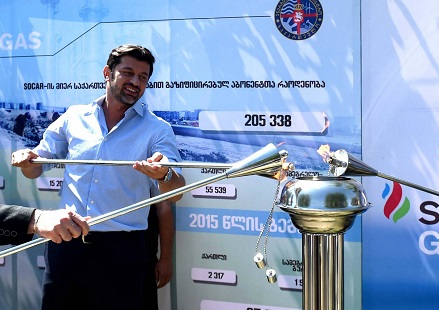
Two Georgian villages located near the occupation line with Georgia’s breakaway Tskhinvali region (South Ossetia) are now supplied with natural gas for the first time.
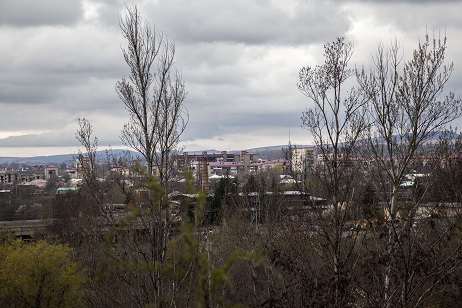
Georgian farmers whose lands fell behind the occupation line after Russia advanced 2km into Georgian territory earlier this month, will be able to freely access their harvest.

More members of the international community voice their concern over Russia’s illegal actions at the Administrative Border Line (ABL) in Georgia’s breakaway Tskhinvali region (South Ossetia).
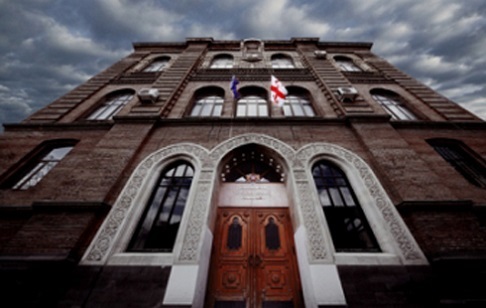
Twenty percent of Georgia's territory remains occupied, mass violations of human rights and ethnic cleansing is still ongoing in the areas affected by Russian ‘borderisation’ and creeping annexation - Georgia’s Ministry of Foreign Affairs is calling on the international community to react adequately after seven years of the tragic results of the Russian– Georgian war of 2008.
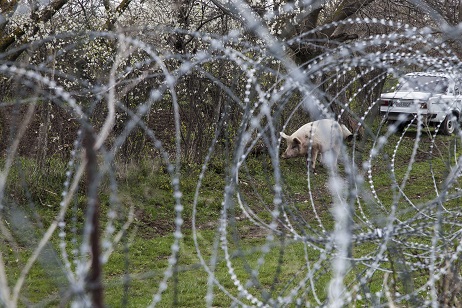
Russia has advanced its creeping occupation into Georgian territory again. In the past 24 hours Russian troops placed new demarcation signposts along the Administrative Boundary Line between the occupied Tskhinvali region and the rest of Georgian territory.
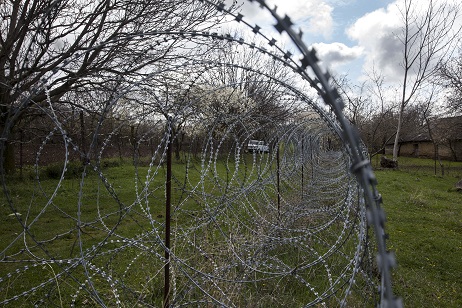
The United Nations (UN) Secretary General Ban Ki Moon is concerned by reports of continued "borderisation” along the Administrative Boundary Lines between two Russian-occupied Georgian regions – Abkhazia and South Ossetia – and the rest of Georgia.
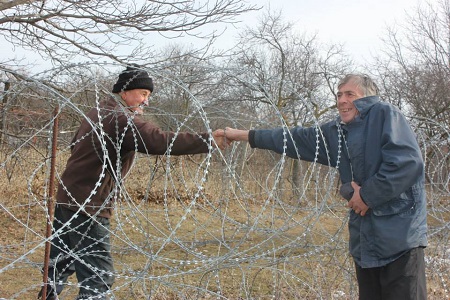
A documentary film by Georgian director Toma Chagelishvili, shot at a Georgian village at the centre of Russia’s creeping occupation, was awarded with a special prize by the International Documentary Film Festival Amsterdam (IDFA).

Oil and gas company British Petroleum (BP) will invest $150 million USD in Georgia to modernise certain sections of the Baku-Supsa pipeline and improve ecological standards.

Prime Minister of Georgia Giorgi Kvirikashvili believes the Organisation for Security and Co-operation in Europe (OSCE) plays an important role in the prevention of security threats against Georgia.
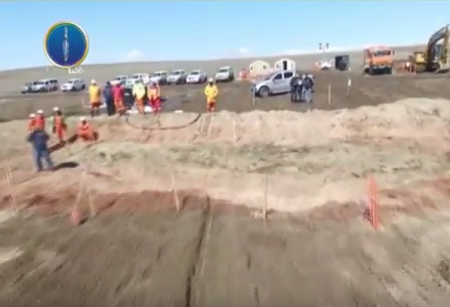
Two men have been arrested for regularly stealing large amounts of crude oil from the BP-operated Baku-Supsa Pipeline in Georgia.
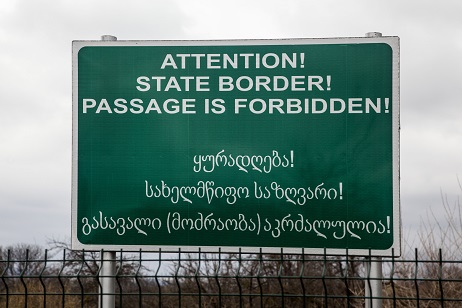
Today Russian-controlled armed guards in uniform installed new ‘border’ signs in the small Georgian village of Avnevi in Kareli municipality in central Georgia, local media reported today.
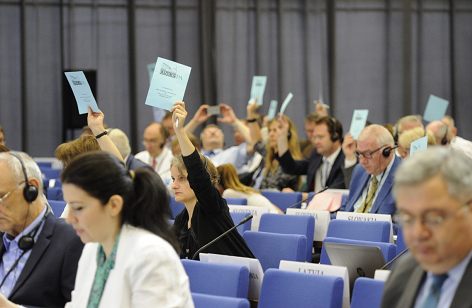
The OSCE PA approved an important document prepared by Georgia about the conflicts in the country, stating Russia continued to violate international laws and violate the rights of Georgian citizens living in and near the occupied regions.
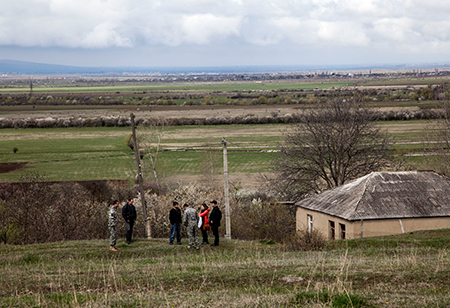
Russian occupants are continuing their illegal activities in eastern Georgia’s Gori municipality, and this time have taken vital crops away from farmers, leaving them without food. Gori is located near the Administrative Boundary Line (ABL) separating Georgia and occupied Tskhinvali (South Ossetia).
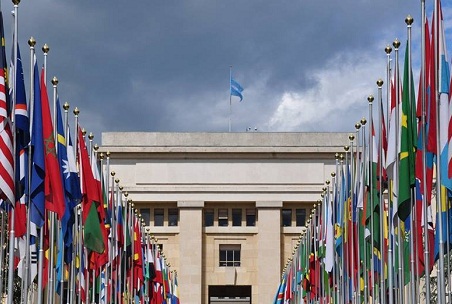
Representatives of the Government of Georgia have openly have condemned the recently ratified military deal between Russia and Georgia’s western de facto Abkhazia region at the 38th round of Geneva International Talks, which discuss Georgia’s conflict issues.

Georgian President Giorgi Margvelashvili is calling on the global community to "properly assess” Russia’s "illegal actions” on the Georgian territory and take relevant measures.
 Tweet
Tweet  Share
Share

